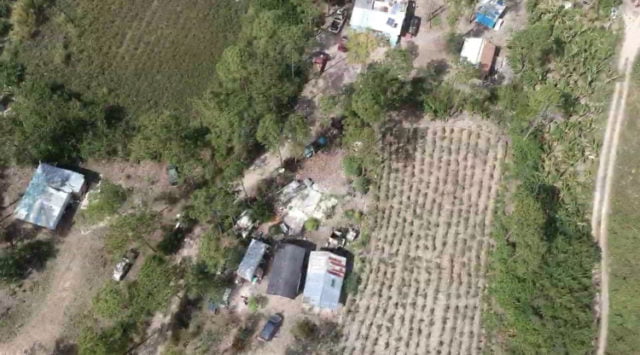
NASSAU, BAHAMAS — Prime Minister Philip Davis KC said the government will begin the process to remove shanty towns after a Supreme Court judge's decision to discharge an injunction that previously barred the demolition of structures in Abaco and New Providence.
"What it means is it now allows us to employ the process to correct those issues within the shanty towns. There is a process for the removal of any erection of buildings and we intend to engage in those and then deal with those issues that impact us with respect to that," Davis said yesterday when asked about the ruling.
Attorney General Ryan Pinder in a brief comment on the matter said, "We are pleased with the decision and believe it was the correct decision."
The Office of the Attorney General recently filed a summons seeking the court's permission to demolish the expansion of a shanty town in Abaco and two locations in New Providence.
Acknowledging that the issue was a "crucial matter of national importance," Justice Cheryl Grant-Thompson in a 70-page decision handed down Friday ruled that the original injunction instituted in 2018 covering the shanty towns is now discharged and that the government is no longer restrained from taking possession of or demolishing or otherwise "lawfully interfering with the applicants' and other residents' and occupiers' enjoyment of land in "Shanty Towns" in New Providence or elsewhere in The Bahamas."
The ruling read: "This includes the disconnection of any utilities in accordance with the relevant enabling legislation, in full conformity with the laws and usages of The Bahamas. Their actions should be humane and sensitive to the needs of this potentially vulnerable community and in full compliance with International Conventions such as the United Nations Convention on Human Rights, and the Inter-American Commission on Human Rights ("IACHR") which recognizes the inherent dignity of equal and inalienable rights of all members of the human family."
The judicial review application had been filed by the non-profit organization Respect Our Homes and 177 residents of shanty towns.
The applicants had denounced the impropriety of government decisions to take "apparent" possession of the land on which "shanty towns" stood; the decision to disconnect the utilities in those areas' land without due and proper consultation and the decision to issue general blanket Notices to individuals living in those areas under section 4(3) of the Buildings Regulation Act 1971 ("the Notices Decision").
With regard to possession of the land in question on which the shanty towns were located, Justice Grant-Thompson ruled that "the evidence submitted by the Applicants did not prove the government had formulated the intention to possess the land."
She continued: 'The primary piece of evidence relied on to show actual interference was the government's interaction with the relevant land in Abaco, subsequent to the horrific impact of Category Five Hurricane Dorian, one of the worst natural disasters in the history of The Bahamas. This Court is mindful of the duty of the Government of the Commonwealth of The Bahamas to remove and even in some instances destroy buildings that the government may view as hazardous to the citizens, inhabitants, or to good public health and safety or otherwise in breach of law. There was no evidence to show acts of factual possession of the aforesaid land on the part of the Government."
On the issue of the disconnection of utilities, the judge ruled that the relevant utility corporations are statutorily empowered to disconnect utilities for non-payment of outstanding bills, to conserve supply during periods where it is limited, for the purposes of upgrading their systems, or any other reasonable circumstance that may require a disconnection.
The judge also ruled that she was satisfied that the decision to issue Notices to the inhabitants of the shanty towns pursuant to section 4(3) of the Building Regulations Act Chapter 200 was in compliance with the legislation.
Click here to read more on the Eye Witness News website





